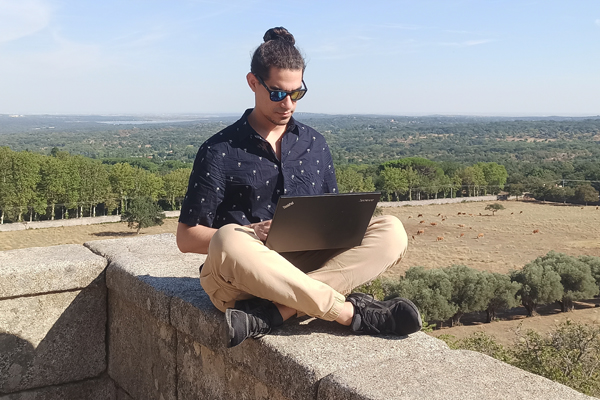One in four workers are now more likely to work remotely for a few days before or after a holiday to extend their time in a travel destination, known as ‘bleisure’ time, a new study has found.
According to the poll of 4,000 UK adults carried out by Yonder for property investment firm Castleforge, 27% of workers confirmed that their employer is now more likely to accept them working away from home for at least a few weeks a year; with the figure rising to 36% among 18-34s.
The growth of ‘bleisure’, where business travel and leisure crossover, means one in four workers (25%) also say they are now more likely to work remotely for a few days before or after a holiday to extend their time in a travel destination. In return, employees have become more flexible about their work. Additionally, 27% now more likely to check their emails while on holiday than before the pandemic; and almost a fifth (17%) are more likely to participate in work calls while away.
WORKING WHILE AWAY
Younger people are the least likely to switch off, with 36% of 18-34 year olds now more likely to check work emails during periods of leave than pre-Covid. Among that younger age group, 25% are also more likely to take part in work calls while on holiday.
The trend has increased demand for serviced apartments and hotels with 39% of those who work while away on holiday saying they would be more likely to choose such accommodation over Airbnb-style properties for working while away. The figure rises to 47% among 18-34s who work away from home.
Of those who travel for longer than a week, 39% of adults and nearly half (47%) of the under 35s say they are now more likely to look for a larger room with a desk space instead of luxury hotel facilities such as a swimming pool.

“The lines between work and travel, and between work travel and holidaying, are more blurred post-pandemic than ever before,” shared Michael Kovacs, Founding Partner of Castleforge. “Younger people especially are taking advantage of remote working and their needs are changing. As they grow older and have greater incomes, we can anticipate a greater demand still for holiday spaces where people can make a longer trip but still keep in touch with work while away.”
EXTENDED BUSINESS STAYS
Jamie Lamb, CEO and Founding Director of Axiom Hospitality, agreed. “This research reflects the increasing demand for hospitality accommodation that functions both as a place to work and a place to relax, as more people look to extend business stays and work while on holiday,” shared Lamb. “Though it’s important people really ‘switch off’ while on leave, access to high-end working facilities in their holiday accommodation gives people the freedom to be away far longer than was previously possible, to work from anywhere.”
The survey also found that travellers are also more concerned with the carbon footprint of travel with a 46% of respondents willing to minimise the number of flights they take each year to reduce their carbon footprint. Among those who take business trips, 51% are also more likely to take their partners away with them in order to take the opportunity of travelling together.







































